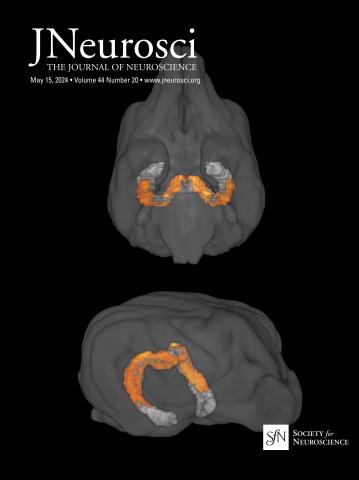Phasic alertness impairs cognitive control by amplifying competition between evidence accumulators.
IF 4
2区 医学
Q1 NEUROSCIENCES
引用次数: 0
Abstract
Although phasic alertness generally benefits cognitive performance, it often increases the impact of distracting information, resulting in impaired decision-making and cognitive control. However, it is unclear why phasic alertness has these negative effects. Here, we present a novel, biologically-informed account, according to which phasic alertness generates a transient, evidence-independent input to the decision process. This shortens overall response times, but also amplifies competition between evidence accumulators, thus slowing down decision-making and impairing cognitive control. The key hypotheses of this account are supported with pupil measurements and electrophysiological data from human decision-makers of either sex performing an arrow flanker task. We also show that a computational model of the flanker task that incorporates a transient, evidence-independent input can reproduce the behavioral effects of phasic alertness, but only when the evidence accumulators compete with each other through lateral inhibition. Our results reveal a close interplay between dynamic changes in alertness, cognitive control and evidence accumulation.Significance Statement The human attention system is thought to consist of three fundamental components: alerting, orienting, and cognitive control, which shields goal-directed mental activity from distracting information. Although these attentional components are thought to be subserved by distinct brain systems, they seemingly work in concert to produce complicated patterns of behavior. Here, we focus on an interaction between alertness and cognitive control that has puzzled cognitive psychologists for two decades: although increased alertness generally benefits cognitive performance, it disrupts cognitive control. We propose a neurobiologically plausible mechanistic account of how alertness impairs control, and support this account with pupil and EEG measurements, as well as computer simulations.阶段性警觉性通过放大证据积累者之间的竞争而损害认知控制。
虽然阶段警觉性通常有利于认知表现,但它往往会增加分散注意力的信息的影响,导致决策和认知控制受损。然而,目前还不清楚为什么阶段性警觉性会有这些负面影响。在这里,我们提出了一个新颖的,生物知情的帐户,根据阶段性警觉性产生一个短暂的,证据独立的输入决策过程。这缩短了总体反应时间,但也放大了证据积累者之间的竞争,从而减慢了决策速度,损害了认知控制。这一理论的关键假设得到了瞳孔测量和人类决策者在执行箭侧任务时的电生理数据的支持。我们还表明,侧翼任务的计算模型包含了一个短暂的,证据独立的输入,可以重现相警觉性的行为效应,但只有当证据积累者通过横向抑制相互竞争时。我们的研究结果揭示了警觉性、认知控制和证据积累的动态变化之间的密切相互作用。人类的注意力系统被认为由三个基本组成部分组成:警报、定向和认知控制,它保护目标导向的心理活动不受分散信息的影响。尽管这些注意力组成部分被认为是由不同的大脑系统服务的,但它们似乎协同工作,产生了复杂的行为模式。在这里,我们关注警觉性和认知控制之间的相互作用,这个问题困扰了认知心理学家二十年:尽管警觉性的提高通常有利于认知表现,但它会破坏认知控制。我们提出了一种神经生物学上合理的机制,解释警觉性如何损害控制,并通过瞳孔和脑电图测量以及计算机模拟来支持这一说法。
本文章由计算机程序翻译,如有差异,请以英文原文为准。
求助全文
约1分钟内获得全文
求助全文
来源期刊

Journal of Neuroscience
医学-神经科学
CiteScore
9.30
自引率
3.80%
发文量
1164
审稿时长
12 months
期刊介绍:
JNeurosci (ISSN 0270-6474) is an official journal of the Society for Neuroscience. It is published weekly by the Society, fifty weeks a year, one volume a year. JNeurosci publishes papers on a broad range of topics of general interest to those working on the nervous system. Authors now have an Open Choice option for their published articles
 求助内容:
求助内容: 应助结果提醒方式:
应助结果提醒方式:


